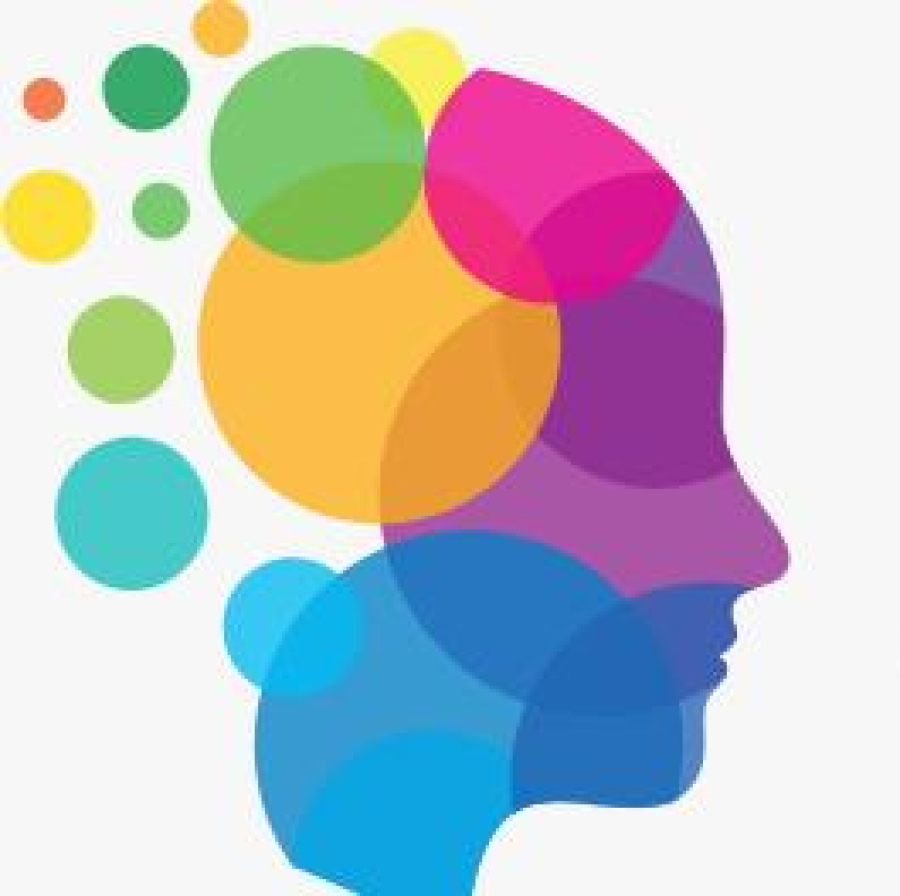AI & Job Market: Embracing the New Era of Work with Excitement!
Artificial Intelligence is revolutionizing the way we work and opening up incredible possibilities that were once only imaginable. From automation to predictive analytics, AI is disrupting traditional methods and transforming industries across the board. In this blog post, we will explore how AI is changing the ways of working, and how it is reshaping the job market as we know it. Get ready to be amazed, because the future of work is here, and it's time to embrace it with excitement!
AI is no longer a futuristic concept confined to science fiction movies. It has permeated various industries and is rapidly transforming the job market. With its ability to mimic human intelligence and perform tasks that typically require human intervention, AI is poised to bring about a new era of work. Exciting times lie ahead!
Wait up! What is AI? Artificial Intelligence, AI, refers to the development of computer systems that can perform tasks that usually require human intelligence. These tasks include speech recognition, problem-solving, decision-making, and even learning. AI technology has the potential to revolutionize various industries by automating mundane tasks, reducing human error, and increasing productivity.
The impact of AI on various industries is nothing short of remarkable. From healthcare to finance, manufacturing to transportation, AI is making waves everywhere. In healthcare, AI-powered algorithms can analyse medical data, enabling accurate diagnoses and personalized treatment plans. Also, virtual nurses and chatbots provide patient support and improve communication between healthcare providers and patients.
In Finance, AI algorithms analyse vast amounts of financial data to detect patterns and make predictions for investment strategies. Also, fraud detection systems powered by AI algorithms help identify and prevent fraudulent activities within financial institutions. In Manufacturing, AI-powered robots and automation systems enhance production efficiency, reduce errors, and improve overall quality control. As regards transportation, self-driving vehicles, powered by AI algorithms and sensors, are revolutionizing the automotive industry, leading to safer and more efficient transportation.
The advent of artificial intelligence (AI) has brought about a new era of work that is nothing short of exciting. One of the most significant contributions of AI to the job market is its ability to automate routine and repetitive tasks. This means that mundane and monotonous tasks that used to eat up a considerable chunk of our time can now be handled by intelligent machines, allowing us to focus on more creative and strategic aspects of our work.
The potential impact of automation on different job sectors and industries is immense. From manufacturing to customer service, AI has the capability to streamline processes, increase efficiency, and enable organizations to thrive in a fast-paced and competitive market. Take the manufacturing industry, for example. With the help of AI-powered robots, companies can automate assembly lines, resulting in higher productivity and faster production rates. This not only reduces costs but also frees human workers from repetitive and tedious tasks, allowing them to focus on more complex and creative aspects of their jobs.
In customer service, AI-powered chatbots and virtual assistants can handle frequently asked questions, providing swift and accurate responses to customers 24/7. This not only improves customer satisfaction but also reduces the workload on human customer service agents, enabling them to concentrate on addressing more intricate customer inquiries and delivering personalized experiences.
AI is creating exciting new opportunities in emerging fields. As technology continues to advance, AI is becoming an integral part of various industries, leading to a surge in demand for AI-related job roles. This is an exhilarating time for professionals, as they have the chance to explore a whole new era of work.
The growth of AI-related job roles is astonishing, with companies actively seeking professionals skilled in AI technologies. From data scientists to machine learning engineers, the demand for these roles is skyrocketing. This presents an incredible opportunity for individuals to delve into the world of AI and acquire the skills that are highly sought after in the job market.
It's not just technical roles that are flourishing with the rise of AI. Hybrid job roles that combine AI and human abilities are emerging. These roles require individuals to possess both technical expertise and human creativity. For example, AI consultants are in high demand as they provide strategic guidance on integrating AI technologies into businesses while considering the ethical implications. This blending of AI and human capabilities is truly exciting and opens up a whole new realm of possibilities in the job market.
With the rapid advancements in AI technology, it's crucial for individuals to embrace upskilling and reskilling opportunities. The traditional job roles are evolving, and the skills required to thrive in the AI era are constantly changing. By actively seeking opportunities to learn and adapt, individuals can position themselves as valuable assets in the job market. Upskilling and reskilling not only enhance one's employability but also open up exciting new career paths that were previously unimaginable.
Fortunately, the digital age has made it easier than ever to acquire AI skills. Online courses and resources have emerged as a convenient and accessible way for individuals to learn about AI. Whether it's through platforms like Coursera or Udacity, or through online tutorials and webinars, there is an abundance of opportunities to gain knowledge in this field. These resources often provide comprehensive and structured learning paths, allowing individuals to progress at their own pace and tailor their education to their specific interests.
Continuous learning and adaptability are key to thrive in the job market in this new era. AI is evolving at a rapid pace, and so must we. It's no longer enough to rely solely on our existing skill set. We must be willing to learn and adapt to new technologies and tools that AI brings to the table.
Fortunately, AI itself can be our greatest ally in this endeavour. It can assist us in learning and acquiring new skills, providing us with personalized recommendations and resources. With AI as our guide, we can embark on a journey of self-improvement, constantly staying ahead of the curve and remaining relevant in the ever-changing job market.
One of the most exciting aspects of AI is its ability to enhance decision-making and improve work efficiency. AI algorithms can process massive amounts of data, analyse patterns, and provide valuable insights that humans might overlook. This can lead to more informed and data-driven decision-making, ultimately resulting in better outcomes for businesses and organizations.
While this new era of work brings excitement and endless possibilities, it is important to address the ethical implications that AI adoption entails. One of the major concerns is the potential for bias in AI algorithms, which could perpetuate existing inequalities and discrimination. However, with the right approach and responsible AI practices, we have the opportunity to mitigate these concerns and create a more inclusive and fair job market.
With great power comes great responsibility, and this certainly applies to the adoption of AI in the job market. It is crucial for organizations and policymakers to prioritize responsible AI practices and establish clear regulations to ensure the ethical use of AI. By proactively addressing these concerns, we can build trust in AI systems and harness their full potential for the benefit of both businesses and workers. Responsible AI practices involve transparency in algorithmic decision-making, regular audits of AI systems, and continuous monitoring to identify and rectify any biases or unintended consequences.
Contrary to popular belief, the rise of AI does not necessarily imply a complete replacement of human workers. Instead, the collaboration between humans and AI can lead to enhanced productivity and creativity. By automating repetitive and mundane tasks, AI frees up valuable time for workers to focus on more strategic and creative aspects of their jobs. This collaboration can lead to the development of innovative solutions, increased efficiency, and improved decision-making. With the right mindset and willingness.
Imagine a scenario where a team of engineers is working on a complex problem. By collaborating with AI systems, they can explore multiple solutions at a rapid pace, thanks to AI's ability to process and generate ideas quickly. Humans can then evaluate these ideas, applying their expertise and judgment to determine the most suitable solution. This collaborative problem-solving approach enables us to tackle challenges that would have been daunting for humans or AI alone.
Furthermore, the synergy between humans and AI opens up new avenues for innovation. Humans can provide the context, intuition, and emotional intelligence that AI lacks. By working hand in hand, we can unleash our creativity and devise groundbreaking solutions. AI can augment our abilities by crunching data, identifying patterns, and proposing alternative approaches. This partnership between humans and AI can lead to the development of revolutionary products, processes, and services that we couldn't have imagined before.
Embracing this new era of work means seeing AI as a valuable partner rather than a competitor. It means understanding that AI is here to amplify our capabilities, not replace us. By embracing AI, we can free ourselves from mundane tasks and focus on more meaningful and fulfilling work. This collaboration allows us to grow professionally, learn new skills, and adapt to the changing job market.
The rapid advancement of artificial intelligence (AI) has sparked both excitement and apprehension about its impact on the job market. While some fear that AI will replace human workers, others view it as an opportunity for growth and innovation. As we enter this new era of work, it is crucial for individuals and organizations alike to adapt and embrace the changes that AI brings.
One strategy for individuals to thrive in the AI era is to embrace lifelong learning. With AI automating routine tasks, it is essential to continuously upgrade skills and stay relevant in the job market. Fortunately, there are numerous online platforms and courses that offer opportunities for upskilling and reskilling. By actively seeking out these resources and investing in their personal development, individuals can position themselves as valuable assets in the workforce.
Embracing new technologies for career growth is another key strategy in the AI era. Rather than fearing the rise of AI, individuals can harness its power to enhance their own capabilities. For instance, professionals in various industries can leverage AI tools to analyse data more efficiently, make better decisions, and streamline processes. By embracing AI technologies, individuals can become more productive and valuable contributors to their organizations, ultimately leading to career growth and advancement.
The importance of fostering a culture of innovation cannot be overstated in the AI era. Organizations that encourage experimentation and embrace AI advancements are more likely to thrive in this new landscape. By creating an environment that values creativity and risk-taking, companies can foster the development of new ideas and solutions. This not only allows them to stay ahead of the competition but also opens up new opportunities for employees to contribute and grow within the organization.
Moreover, organizations should actively invest in AI research and development. By keeping up with the latest advancements in AI, companies can adapt their business strategies and processes accordingly. This proactive approach enables organizations to harness the full potential of AI and stay ahead of industry trends.
In conclusion, it is truly an exciting time to be a part of the job market in the era of AI. As we eagerly embrace the advancements and possibilities that AI brings, we must also remember that it is not meant to replace human workers, but rather work alongside them to enhance productivity and efficiency. The integration of AI technology opens up a world of opportunities for innovation, creativity, and growth in various industries. With the right mindset and willingness to adapt, we can harness the power of AI to create a future that is not only prosperous but also fulfilling. So let us embrace this new era of work with excitement, as we navigate the ever-evolving landscape and shape the future together. The possibilities are endless, and the future is bright!





Comments (0)